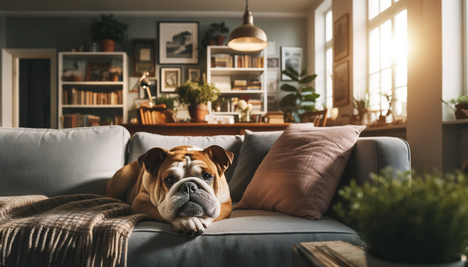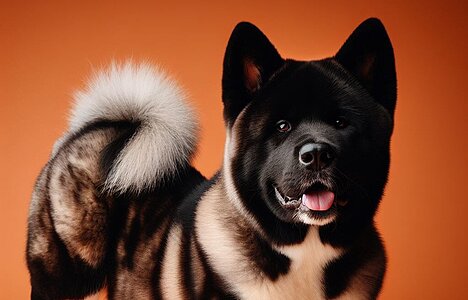Attribute "Not playful"

Calm companions: What does "not playful" mean in a dog breed?
You may have read the term "non-playful" in the description of a dog breed and wondered exactly what it means. While many of us have an image in our heads of a dog happily chasing a ball or playing with other dogs, there are breeds that don't display this playful energy to the same extent. But that doesn't make them any less lovable or suitable as pets. In this article, we take a closer look at what "not playful" means in dog breeds and how you can offer these calm companions the best home.
What does 'not playful' mean?
The term "non-playful" describes dogs that show less interest in typical playful activities such as ball games, fetch or roughhousing. These dogs tend to have a calmer and more relaxed nature. While they can still be active and healthy, they often prefer quieter activities and have less need for intense physical exercise through play.
Characteristics of less playful dogs
Calm and serenity
Non-playful dogs often radiate a remarkable calmness and composure. They are generally less excited and react more relaxed to their surroundings. These dogs are ideal for people who prefer a quieter home or live in an environment where an overly active dog could be problematic.
Less urge to move
These dogs often have a lower urge to exercise compared to more playful breeds. This doesn't mean that they don't need exercise, but their needs are often easier to satisfy. A leisurely walk or a bit of free running in the garden can be enough to keep them happy and balanced.
Stronger bond with the owner
Less playful dogs tend to form a stronger bond with their owners. They like to spend time close to their humans and enjoy quiet moments of togetherness. These dogs are often very loyal and affectionate, which makes them excellent companions.
Advantages of a less playful dog
Less demanding activity
For people with busy schedules or less physical energy, less playful dogs can be a great choice. They don't need hour-long play sessions or intense training sessions to be happy. Their needs are often easier to meet, making them ideal pets for older people or those with limited mobility.
Better adaptability
These dogs adapt more easily to different lifestyles and living situations. Whether you live in an apartment or a house, a less playful dog will be more likely to adapt to the circumstances. As long as they get their daily walks and a bit of mental stimulation, they'll be happy.
Less restlessness and destruction
Another benefit is that less playful dogs are often less prone to destructive behavior. They are less likely to chew up furniture or shoes if they don't get enough physical or mental stimulation. Their calmer nature also means that they are more likely to engage with toys and chew toys rather than seeking more exciting alternatives.
Suitable dog breeds
There are several dog breeds that are known for their calmer, less playful nature. Here are some examples:
English Bulldog
English Bulldogs are known for their cozy and relaxed nature. They are often content with a leisurely walk and are happy to spend the rest of the day snoring on the sofa.
Basset Hound
The Basset Hound is a calm and easy-going breed that loves to be with the family. They are not particularly playful, but enjoy quiet walks and lots of cuddles.
Shih Tzu
Shih Tzus are small, calm dogs that like to spend their time close to their owners. They are not particularly active, which makes them ideal apartment dogs.
Conclusion
A less playful dog can be the perfect companion for people who prefer a calm and relaxed lifestyle. These dogs offer loyal friendship and loving companionship without the constant demand for intense play sessions. If you're thinking about getting a dog and fancy a calmer breed, a less playful dog could be just the thing for you. That way, you can make sure your new four-legged friend is as content and happy as you are.

